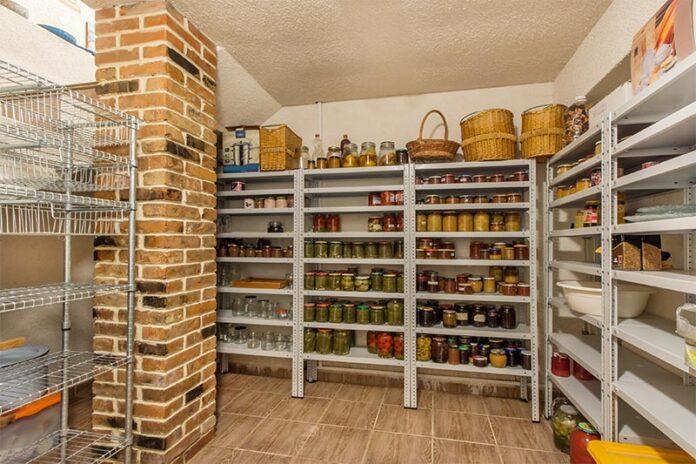One of the first thoughts that crosses most people’s minds during times of crisis is food. They wonder if they have enough food at home to last through the crisis and in most cases they don’t, because prepping for emergencies is not the norm. So, they start rushing to the grocery store to grab whatever food that they think they’ll need.
3 problems can arise here. In one situation, you just may not have access to the shopping center, supermarket, mall or local quick stop. Roads may be closed down or inaccessible due to inclement weather. In the case of an EMP, you may not have a running vehicle. Another more common problem is that the supermarket itself may be closed since most employees are huddled at home. Then of course, if it is open, you may discover that the shelves are empty and most of the items you need are already gone.
All scenarios are common and should highlight the importance of storing your own food just to weather any emergency for a few days. In this article, you’ll be given 8 useful tips to storing food for most emergencies. As long as you stick to them, even a beginner should be fine.
Keep in mind these are quick and easy tips that can help you with the basics.
As of the time of publishing this article, FEMA suggests that every family in America have at least a three-day supply of food and water.
Download the In-depth Guide to Citizen Preparedness
Now, on with the tips.
1. 30 Days
Ideally, you want to store enough food that will last you for 30 days. While this may seem extreme, it is a good measure to aim for. You can last through most crises and emergencies with 30 days of food supplies. Only the worst disasters will require more food and if that’s the case, by then there will be some sort of food aid provided by the authorities.
Do note that when storing the food, you should take into account the needs of all family members and make sure you have sufficient supplies to cover the entire family. If you have pets, you need to store food for them too.
2. Rotate your food
When storing your food, place the newest stores at the back and the older stores in front. If there’s a crisis, ensure that you consume the older food stores first. It’s a good idea to have a record book to monitor when you purchased the food and the expiry dates. This will make it much easier to track your stores.
3. Store food properly
Your food stores should be tightly sealed and not exposed to heat and rodents. Ensure that your stores are in a cool and dry environment,
4. Store foods you like
Ideally, the food you store should be what your family and you enjoy eating and are also nutritious. It’s a good idea to also stock some comfort foods like chocolate, canned fruit, etc. During emergencies, these foods will lift your spirits and give you an emotional ‘break’ from the stress of the situation.
5. Rotate your food stocks
Monitor your food stocks and consume them when they’re close to expiry. Replenish the food as soon as possible. In this way, not only will you prevent wastage but your food supplies will not have expired without your knowledge.
6. Know what foods to store
Some foods like milk, bread and eggs do not have a long shelf life. Storing them will be a hassle. You should focus on freeze dried foods, canned food, uncooked rice, flour, meals ready to eat (MREs) and other foods that have a longer shelf life and contain the nutrients you need.
You may consider getting food that can be chilled or frozen but there is always the possibility that your home may experience a power outage during a crisis and you’ll need to quickly consume the food in the refrigerator before they start rotting.
7. Utensils and paper plates
During crises, you’ll want to conserve water. Use disposable plastic utensils and paper plates instead. Do remember to have trash bags stored too.
8. Spices and other condiments
Do remember to store ingredients and sauces used to flavor your food. In the event that you want to cook, having spices, sauces and salt can make a world of difference in how your food tastes. There’s no need to suffer bland meals during a crisis.
The 8 tips above are just scraping the tip of the iceberg, but they’re a good starting point if adhered to.
Just the fact that you’re getting ready for any possible emergency makes you that much more prepared to handle whatever may come your way. Learn as much as you can about prepping and apply what you learn.





